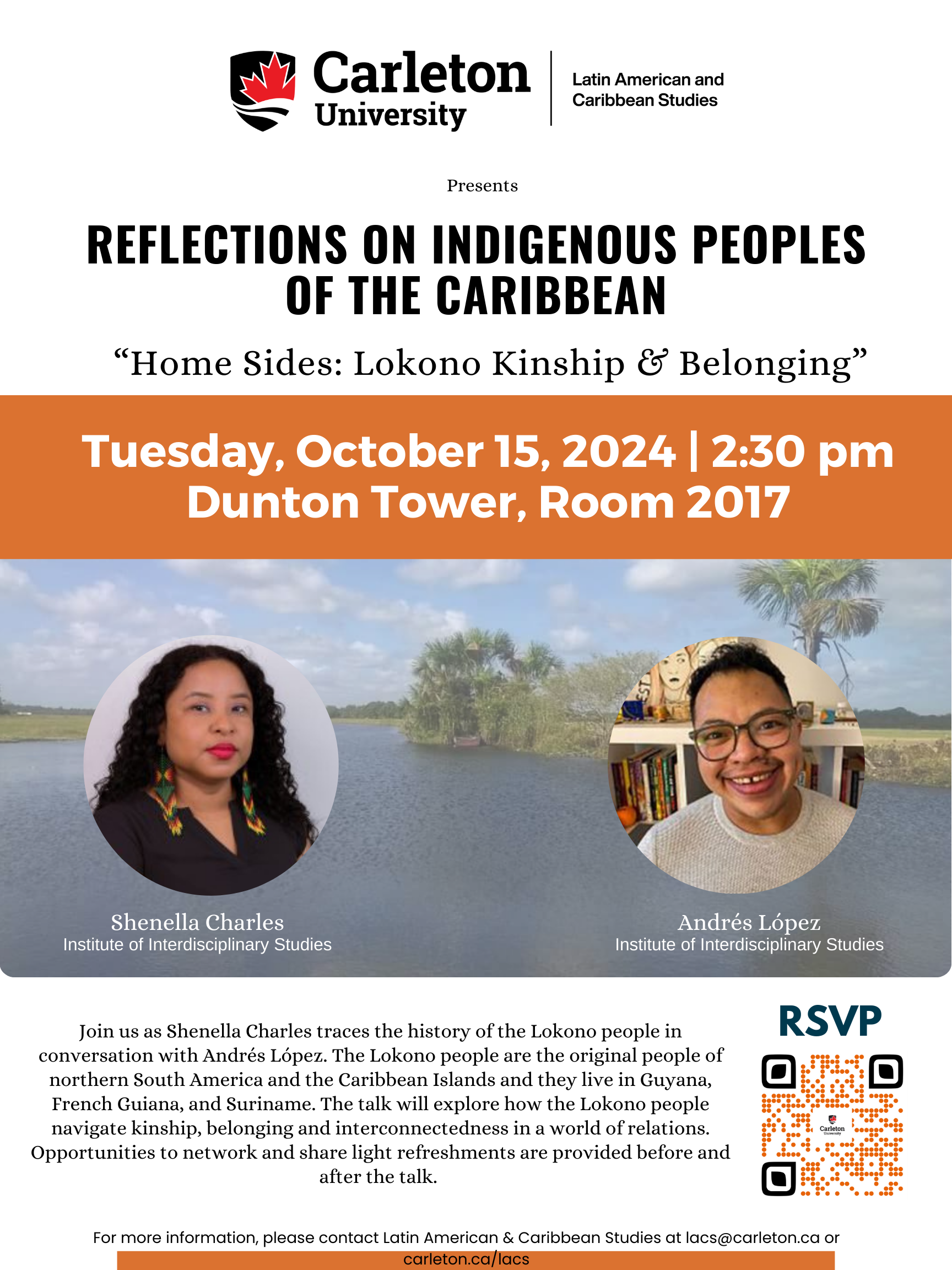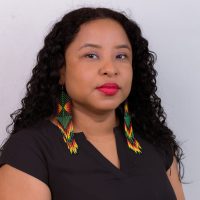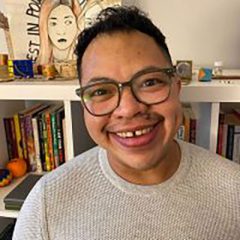Past Event! Note: this event has already taken place.
Home Sides: Lokono Kinship & Belonging
October 15, 2024 at 2:30 PM to 5:30 PM
| Location: | 2017 Dunton Tower |
| Audience: | Alumni, Anyone, Carleton Community, Current Students, Media, Staff and Faculty |
| Key Contact: | Amanda Jeysing |
| Contact Email: | lacs@carleton.ca |

- 2:30-3:00PM – Meet & Greet with refreshments
- 3:00-3:30PM – Public Talk by Shenella Charles
- 3:30-4:00PM – Q&A: Shenella Charles in conversation with Andrés C. López
- 4:00-4:30PM – Q&A with attendees
- 4:30-5:00PM – Mingling & Networking Time
About the Speakers

Shenella Charles (she/her) is a Lokono and Afro-Guyanese historian and a faculty member in the Institute of Interdisciplinary Studies. Her current research explores intersections between histories of Indigeneity and Blackness through discussion of the complex relations between Indigenous peoples, Afro-Guyanese, and Indo-Guyanese; Afro-Indigeneity; and the African diaspora-centered nationalism that emerged in the early decades of Guyana’s independence.
In addition to her research, Shenella has taught courses on Caribbean and Latin American History. Her pedagogy challenges the “paper genocide” of Indigenous Peoples of the Caribbean and advocates for histories that illuminates Indigenous experiences and voices. Shenella is also a member of the Great Lakes Alliance for the Study of Aboriginal Arts and Cultures and has worked with Lokono, Kalina, and Garifuna communities and organizations in the Caribbean. Her work with Indigenous communities and organizations has helped to shape her approach to building global Indigenous solidarities through learning, teaching and activism. She encourages her students to reflect on their positionality and critically engage with History as present.

Andrés López (he/him or they/them) is an Afro-Indio-Jamaican-Guatemalan-Trans-Queer scholar. His interdisciplinary work centers Indigenous and Black feminist theorizing and methodologies and encompasses historiography, Cultural Rhetorics, and Queer Indigenous Two-Spirit Studies. His research uses a Maya backstrap weaving methodology to rewrite active memory recouperations of the Guatemalan Civil War and bring Maya queer and trans ancestors who might be erased not just from physical archives, but also from larger collective memories back into community. This woven historiographic work creates a different type of woven history that complicates traditional understandings of Maya experiences, one that remembers the realities and interconnections of multiple diasporas within Guatemala, the United States, and Canada.
His teaching also incorporates Indigenous and Queer Women of Color feminist approaches through an engagement with intersectional scholarship and politics. His pedagogy actively challenges dominant canons and Eurocentric approaches to scholarship by purposefully asking students to think about their own connections to stories and movements through their different corporeal and lived realities. His approach to teaching through difference is one that is founded on feminist pedagogies for transformative change to create intentional classroom spaces for community learning.
Andrés is one of the Managing Editors for Constellations: A Cultural Rhetorics Publishing Space, an online journal focused on cultural rhetorics scholarship, teaching, and practice. They also serve on the editorial board for Feminist Formations, a leading academic journal in women’s, gender, and sexuality studies.
Organized by the Latin American and Caribbean Studies program at Carleton University.
To reserve a seat, please click on the RSVP button below.